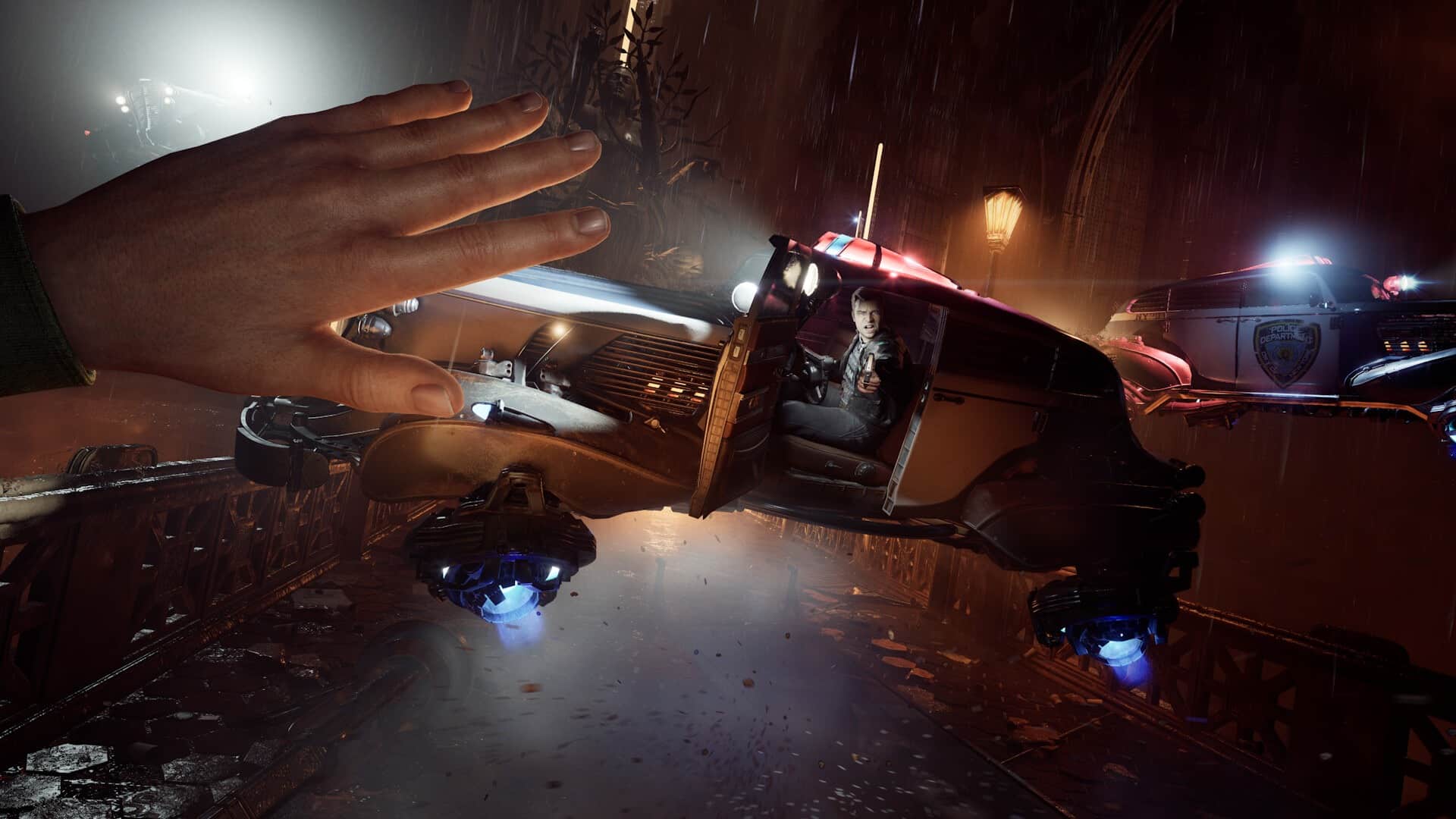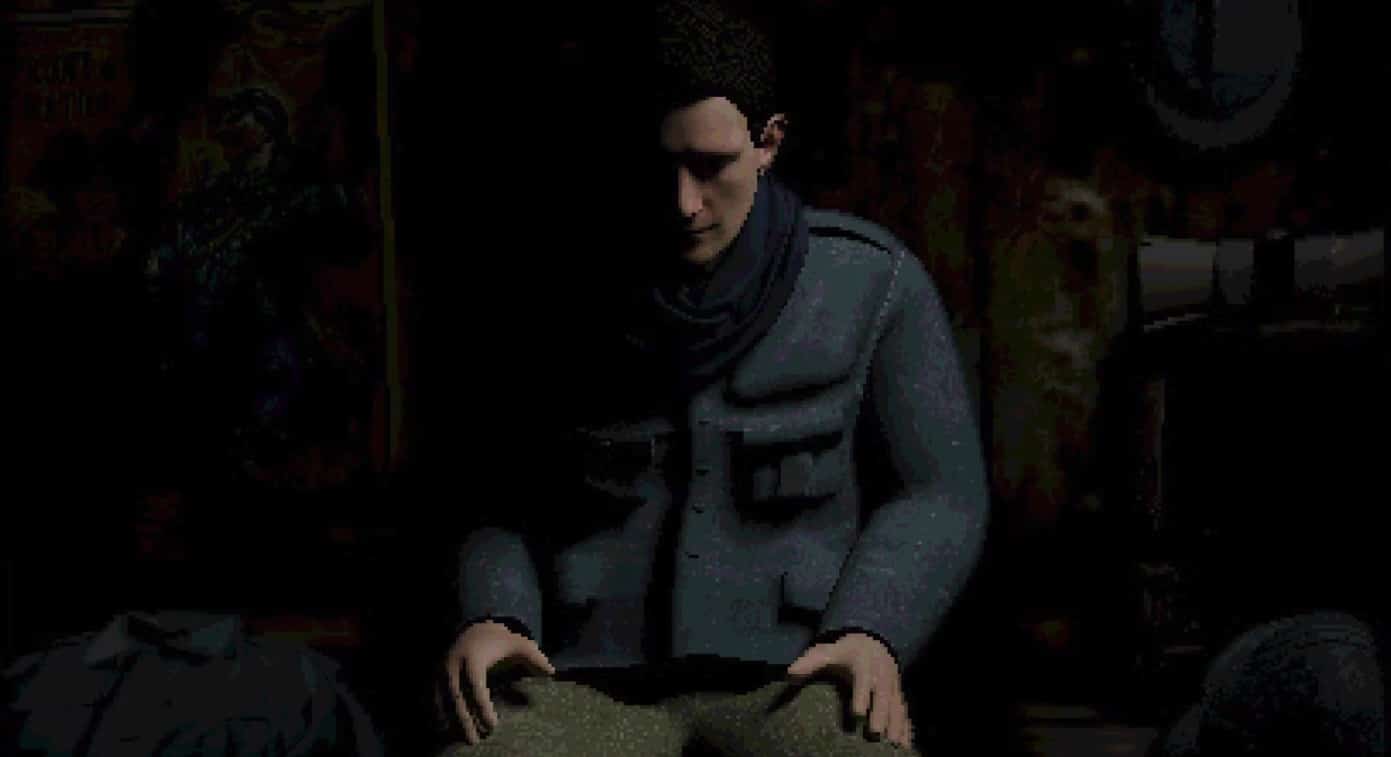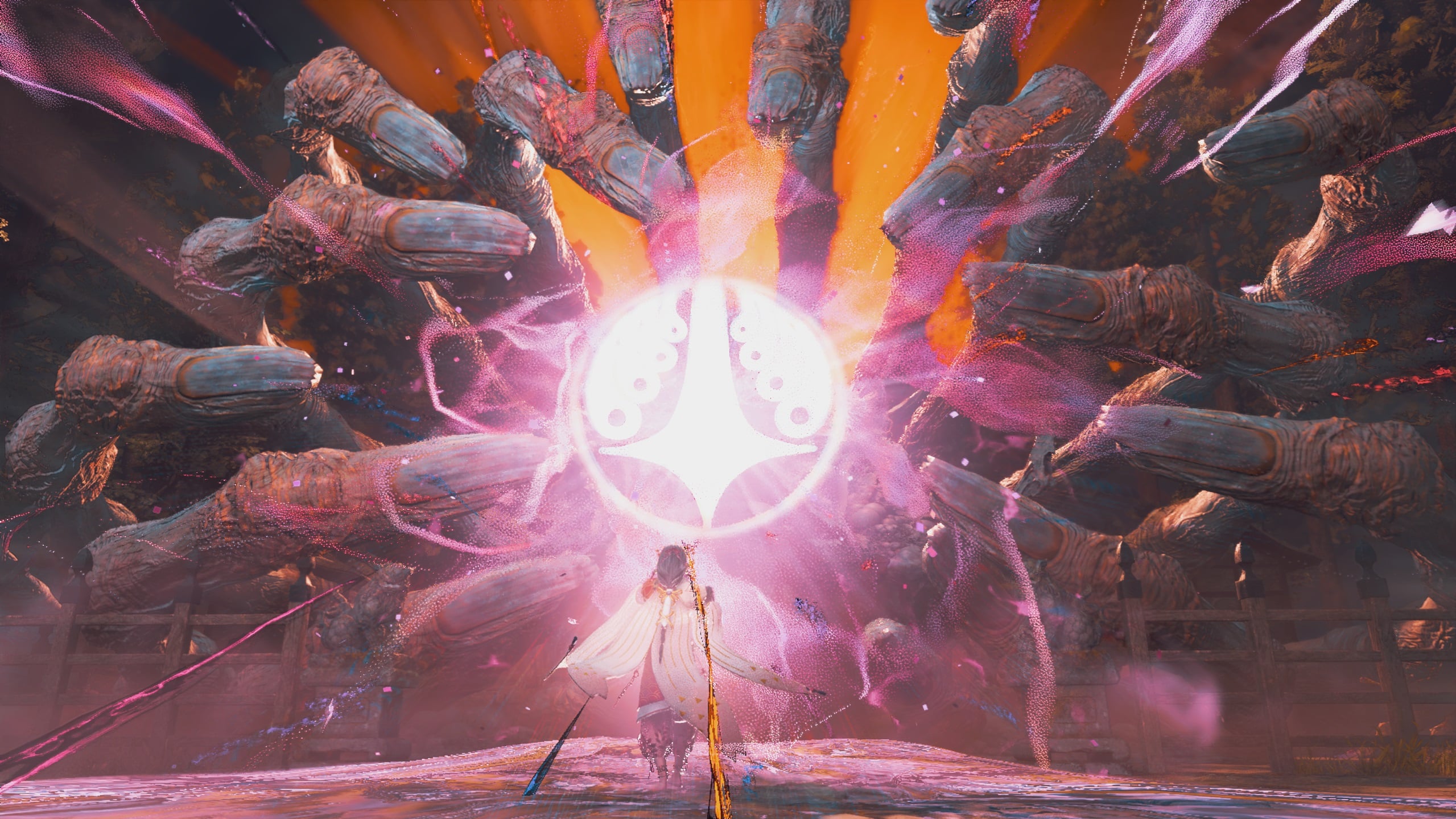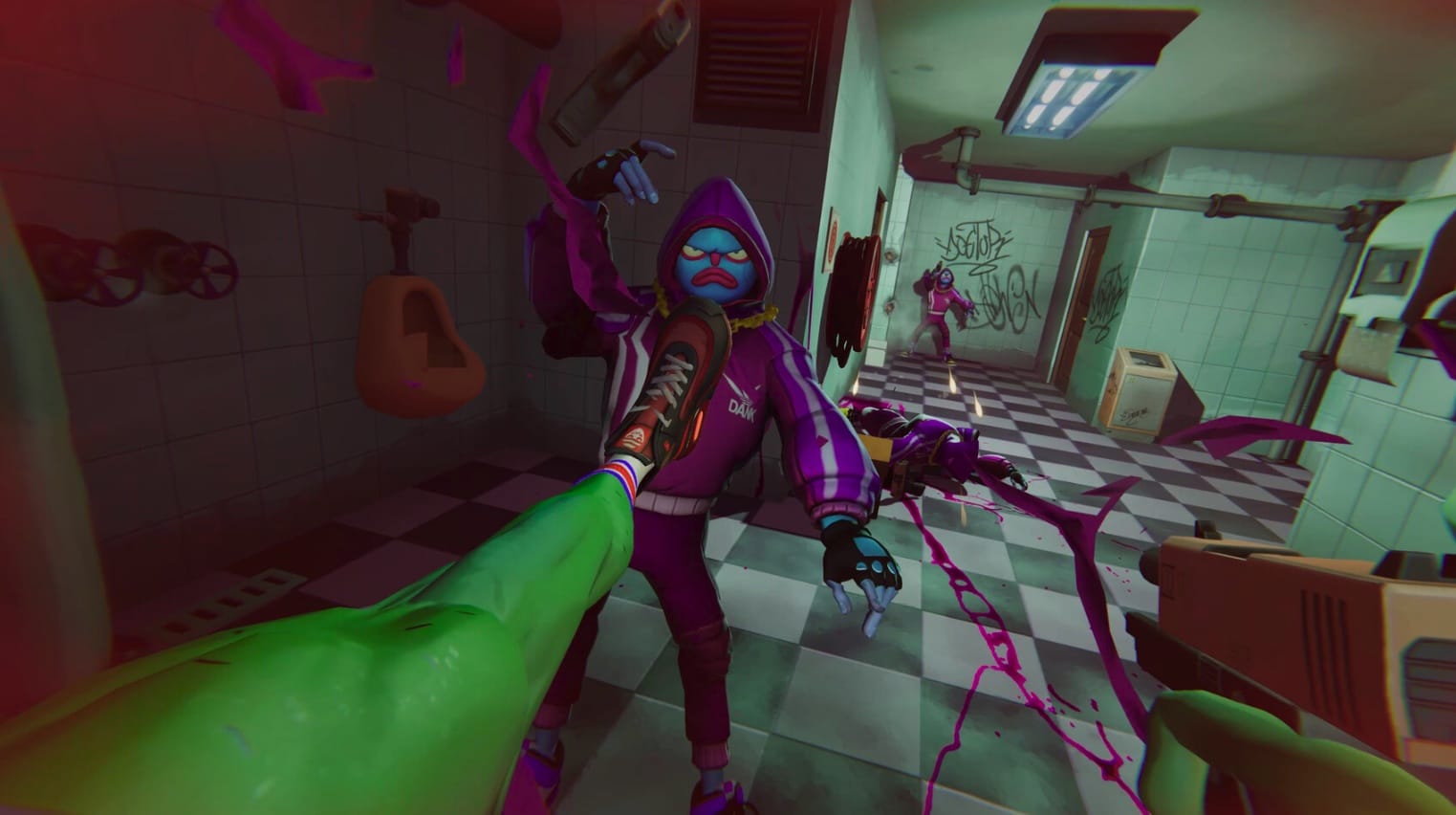It’s rare to see a video game that actively and frequently requires you to leave it entirely in order to progress. But that’s the big hook of Chinatown Detective Agency, an adventure game where you absolutely must use resources outside of the game to solve virtually every one of its puzzles.
Taking clear design inspiration from the edutainment series Where in the World is Carmen Sandiego?, Chinatown Detective Agency requires you to take about a dozen extra steps beyond the basic geography knowledge required for Carmen. Often, the information you receive is only a seed to get you started on a string of deductions you’ll need to make, where you’ll often end up several unknowing leaps from where you started.
Google, Wikipedia, translation apps, and image searches are your best friends when playing Chinatown Detective Agency, and that’s by design. A button on the game’s user interface will instantly minimise the game and open your default web browser. But thankfully, it’s not as simple as throwing in a keyword and grabbing the first result you see.
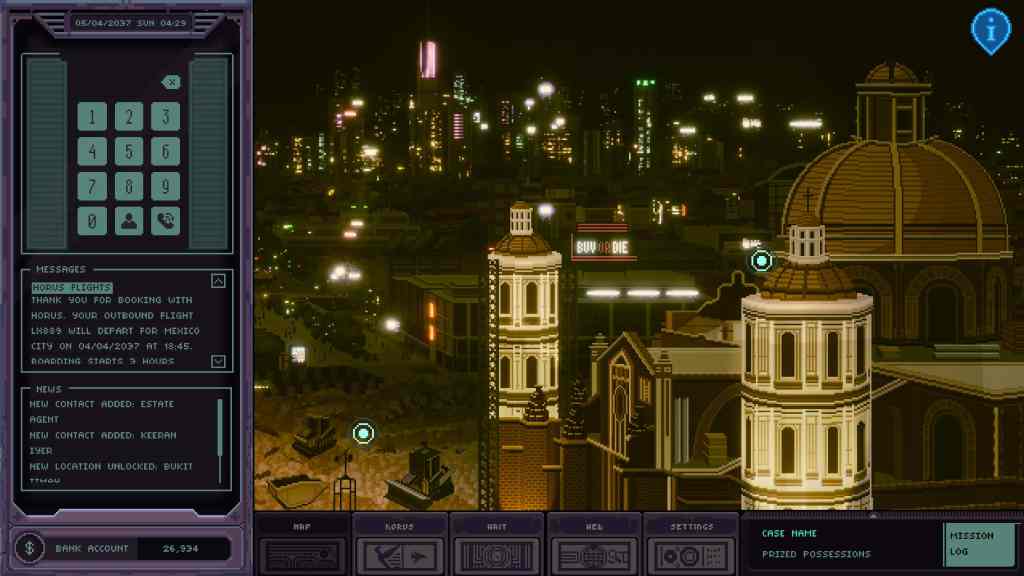
What starts as a simple identification of key terms to research will eventually spiral into something far more involved, requiring obtuse thinking. Researching countries that no longer exist, ancient scripts, mythologies, and religions using increasingly vague and limited details create moments where you might not be completely certain you’re on the right track, but have to make a call anyway. Your thinking will determine the places you might visit, the code you need to crack, or the answer you need to give – and the clock is always ticking.
Read: Every major video game launching in April 2022
Does it feel like real detective work? Well, not quite. You’re never really putting clues together to deduce the outcome of a case – protagonist Amira often steps in and does it all for you in the aftermath of your research, likely in service of crafting the drama of the game’s narrative. But uncovering those pieces for her is largely satisfying in itself.
This does mean there’s a very real risk of hitting a wall and being completely discouraged, however. The game’s instances of cryptology puzzles were my personal undoing – a detour into solving ancient ciphers burnt out my number-adverse brain very quickly. During my initial playthrough, after seeing that one of the branching narrative paths would involve code-cracking right away, I just had to reload a previous save.
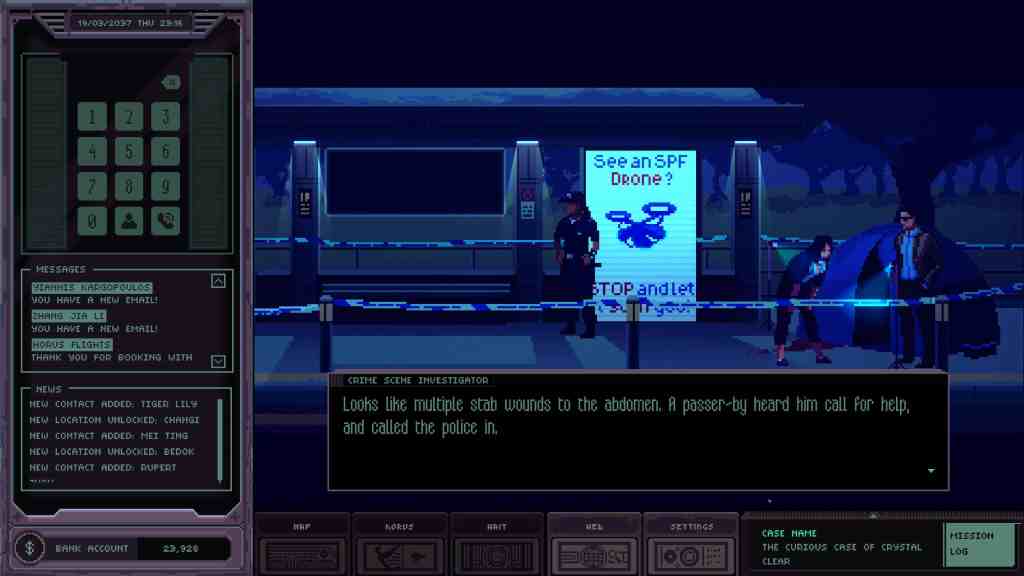
A plucky librarian serves as a well-integrated resource to provide hints and get direct assistance in solving things you might have difficulty with, but it comes with the fear of wasting your in-game currency to compensate her (which Amira needs to keep housed and able to move around the globe) as well taking blow to your sense of self worth. With my own bullish nature, I found this hard to overcome.
The plot of the game is intriguing enough to keep you pushing forward, though. In a futuristic and dystopian Singapore, Amira Darma is a detective-turned-private investigator who gets wrapped up in a series of high-society conspiracies bubbling across the country. Extreme but depressingly believable issues of ethics and governance are unravelled through a number of cases for various clients, involving the likes of organised religion, government deregulation, class divisions and other cheery stuff.
While the plot itself has its ups and downs, Amira as a character remains strong throughout. You never feel like you’re truly embodying her through her investigations, unfortunately – more like you’re her research assistant – but the distance at least serves as a nice window to observe her as she navigates the murky waters that comes with doing private work for morally ambiguous individuals, and her changing perception and relationship to the law.

The setting itself is also a strong aspect of Chinatown Detective Agency. As a multicultural country that, at least from my outsider’s perspective, seems to constantly be negotiating its own unique issues with race, its wealth gap, and its people’s relationship with the government, Singapore seems like a natural setting for exploring grim cyberpunk themes.
But with developer General Interactive Co. based in Singapore, the commitment to a presumably faithful encapsulation of the place and its people really serves to make Chinatown Detective Agency stand out. A diverse array of cultural backgrounds and experiences are represented and referred to, and local voice actors add to the depiction. Not all the performances are exceptional, but it’s lovely hearing such a range of accents and colloquialisms in a video game.
The game does have a number of quirks that either impede the flow of things or threaten to detract from your level of engagement with it, however. Saving your progress is only allowed once you’ve completed a case, for example. Audio bugs and the odd bit of unresponsiveness around the user interface can be annoying. There’s some inconsistency in the voice acting and how it relates to the on-screen text boxes, and sometimes the delineation between spoken word and narration can be confusing. Some missteps in logic means character interactions can be a bit strange – like two people who met in a previous scene reintroducing themselves to one another, or Amira calling a character to speak to them while they stand in the same room.
In terms of the game’s design itself, the initial imperative of managing money – ensuring Amira makes the right decisions in order to save on unnecessary travel, and earning cash bonuses for a few extra objectives – never really plays out as something I needed to manage carefully or make tough decisions on. Even after splurging on things like office expansions and hiring new employees (confusingly presented as both a potential option and mandatory objective at different parts in the game), I never really had to fret about having enough to pay Amira’s rent.
But these issues aside, Chinatown Detective Agency does some interesting and noteworthy things with its take on the point-and-click adventure game, between its reliance on external tools and your own deductive research ability, some solid story and character work, and a strong commitment to encapsulating a country and culture that is unique to video games by default. It’s a strong mixture of elements, and Chinatown Detective Agency will hopefully spark more adventures like it in our own unavoidably dystopian future.
4 Stars: ★★★★
Chinatown Detective Agency
Platforms: PC,
Developer: General Interactive Co.
Publisher: Humble Games
Release Date: April 7, 2022
The PC Version of Chinatown Detective Agency was provided and played for the purposes of this review.

